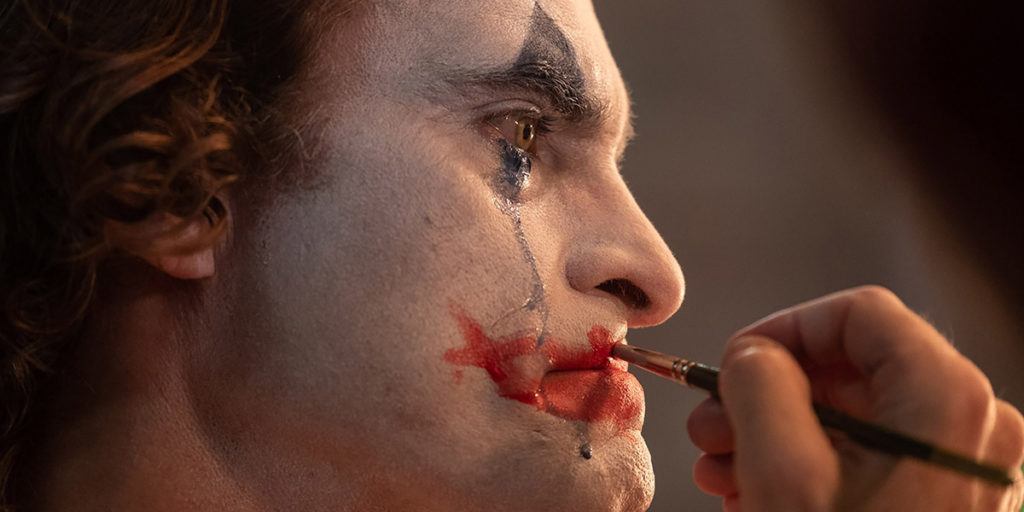Joker

Joaquin Phoenix as Arthur Fleck in JOKER. Image courtesy TIFF.
Like the antihero in BREATHLESS, Arthur Fleck (Joaquin Phoenix) practices faces in the mirror—crafting an identity. And like Belmondo’s Michel Poiccard, his imminent notoriety is largely accidental. Living at home with his mother (Frances Conroy), he scrapes by on the income earned as a clown for hire. Fired for bringing a borrowed gun to a children’s hospital, after shooting three men on one of those metro subway systems that’s completely empty at some hour of the day—odd, considering what kind of cities primarily have public transit—Arthur recedes into a psychosis that can only be explained as PNS (Plot Necessitated Sickness).
Too often in film, those with learning disabilities, mental disorders or mental illness are characterized and stigmatized as being highly susceptible to psychotic episodes. When we first see Arthur acting erratically, the audience giggles—not uncomfortably—at him. It’s not until he gets on his favorite late night show, hosted by Murray Franklin (Robert DeNiro taking the Jerry Langford role to Phoenix’s Rupert Pupkin), that the audience divides into two camps—those who cheer on the murderous Joker, and those revulsed by him.
Ignore, for a moment the gauche co-opting of grit ranging from Tyler Durden to Travis Bickle—the suggested comparison to which DeNiro at the Toronto premiere rolled his eyes. The mob justice of the clown-masked citizens of Gotham taking to the streets, reminiscent of the also dominantly white predilection toward Guy Fawkes and anarchy, is a very privileged view. What generally happens when society and the rule of law collapses is that the rich get richer, and more powerful. Just ask Vladimir Potanin.
Joel Schumacher, the BATMAN alum, gave us a portrait of vigilante justice in 1993’s FALLING DOWN. By contrast, that film ably empathized with Michael Douglas’ character without advancing his misguided ideology built atop social and racial stereotypes. It isn’t helped by Phoenix’s performance which is a caricature of a caricature of mental illness (I’ll bet fifty bucks someone this week will laudably describe it as “balletic”), and as painfully-rehashed as Batman’s alleyway origin story, but with a potentially-familial twist that out-Marthas the dreadful BATMAN V. SUPERMAN and the entire STAR WARS universe at once.
The film argues, through the basso profondo swell of the score, the handheld close-ups, and the cacophony of voices—some real, others imagined—that Arthur is a victim. Nevermind that Todd Phillips, the director of such deep fare as STARSKY AND HUTCH, OLD SCHOOL, and THE HANGOVER, emulates many of the visual and thematic techniques Kubrick and Scorsese used to garner sympathy for the monstrous pedophile Alex in A CLOCKWORK ORANGE and the aforementioned Bickle in TAXI DRIVER. JOKER—a middlebrow impression of highbrow—has a moral compass, and it’s pointed in the wrong direction.